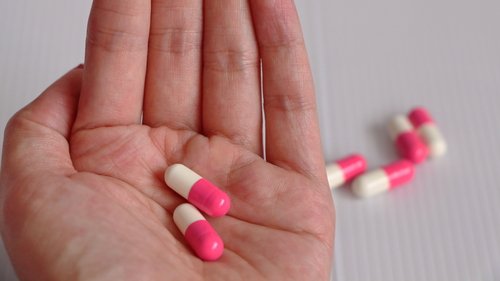The latest results from the Phase 3 MONALEESA-2 study showed that adding Novartis’ Kisqali (ribociclib) to Femara (letrozole) for the treatment of breast cancer in certain postmenopausal women improves the time to disease progression or death by more than nine months, compared to Femara therapy alone.
Participants treated with the combo therapy had similar health-related quality of life and no new safety concerns compared to those receiving Femara alone. The study enrolled patients with hormone receptor-positive and HER2-negative (HR+/HER2-) advanced or metastatic breast cancer.
The findings were featured in two presentations at the 2017 American Society of Clinical Oncology (ASCO) Annual Meeting, held June 2-6 in Chicago.
The posters were titled “Updated results from MONALEESA-2, a phase 3 trial of first-line ribociclib + letrozole in hormone receptor-positive (HR+), HER2-negative (HER2–), advanced breast cancer (ABC)” and “Health-related quality of life (HRQoL) of postmenopausal women with hormone receptor-positive (HR+), human epidermal growth factor receptor 2-negative (HER2-) advanced breast cancer (ABC) treated with ribociclib + letrozole: Results from MONALEESA-2.”
Kisqali was approved by the U.S. Food and Drug Administration in March of this year as a first-line treatment for HR+/HER2- metastatic breast cancer in combination with any aromatase inhibitor, such as Femara (also a Novartis product).
The MONALEESA-2 Phase 3 trial (NCT01958021) is a randomized, double-blind, placebo-controlled trial designed to assess the safety and efficacy of Kisqali plus Femara, compared to Femara alone, in postmenopausal women with HR+/HER2- advanced breast cancer.
The study randomized 668 patients to receive once-daily oral Femara with or without Kisqali administered on days 1-21 of every 28-day cycle. The primary goals were to determine if the combo treatment improved patients’ progression-free survival (PFS). Secondary measures included overall response rate, overall survival, clinical benefit rate, safety, and time to quality of life deterioration.
After a median follow-up of 26.4 months, patients treated with Kisqali plus Femara had a median PFS of 25.3 months, compared to 16.0 months on the Femara arm.
The results of this ongoing trial also demonstrated that 55% of patients in the combo arm had a reduction in tumor size by at least 30% compared to 39% of patients treated with Femara alone.
Data of overall survival is still under analysis.
“This new look at the MONALEESA-2 data, after an additional year of follow-up, demonstrates the continued efficacy of ribociclib plus letrozole,” Gabriel N. Hortobagyi, MD, the trial’s principal investigator, said in a press release.
“With more than two years of follow-up, the PFS data confirm the inclusion of [Kisqali] plus an aromatase inhibitor [Femara] as a strong option among first-line treatments for HR-positive, HER2-negative advanced breast cancer,” added Hortobagyi, a professor of medicine, Department of Breast Medical Oncology at The University of Texas MD Anderson Cancer Center.
Analysis of health-related quality of life outcomes reported by trial participants showed no differences in the safety profiles of patients treated with the combination or with Femara alone. This suggests that Kisqali does not add any adverse events that could significantly impact the patient’s quality of life.
The positive results further support the FDA’s approval of Kisqali as first-line treatment for HR+/HER2- advanced breast cancer.
“Updated MONALEESA-2 results validate the sustained efficacy and established safety profile of Kisqali plus letrozole in patients with HR+/HER2- metastatic breast cancer and confirm the data that supported its recent FDA approval,” said Vas Narasimhan, MD, head of global drug development and chief medical officer at Novartis.
“We are excited about the potential of Kisqali, and are continuing to evaluate its activity in several Phase 3 trials with multiple hormonal therapy combinations across a broad range of patient populations, including in the adjuvant setting,” he said. “We look forward to sharing new results with the scientific community in the coming months and years.”
Two additional Phase 3 studies, MONALEESA-3 (NCT02422615) and MONALEESA-7 (NCT02278120), are testing the efficacy and safety of Kisqali in combination with other therapies for advanced breast cancer.
Novartis is also enrolling participants for the Phase 3 CompLEEment-1 study (NCT02941926) to further evaluate Kisqali in men and pre- or postmenopausal women. Two additional studies are also planned, EarLEE-1 (NCT03078751) and EarLEE-2 (NCT03081234), to assess Kisqali as an adjuvant treatment in patients with HR+/HER2- high-risk or intermediate-risk breast cancer.

